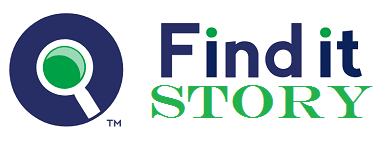Daily battling a mental health disease can be rather taxing and incapacitating. The addition of addiction to the mix might create a completely different level of disturbance. A person with both a concurrent dual diagnosis residential treatment centers, mental health illness and a substance misuse problem will be diagnosed as dual sometimes referred to as co-occurring. When these symptoms seem to rule your life, people may turn to drug usage as a kind of self-medication. Once trapped in this cyclical stream, one can find it challenging to determine where one situation starts and ends. A major first step in the healing process knows exactly what is causing the current problems.
Fortunately, people can look for programs that effectively treat both diseases. With dual diagnosis programs meant to handle the always-shifting elements of co-occurring disorders, Banyan Treatment Center sites offer worldwide addiction and mental health treatment. Continue reading to discover the reasons behind the great relevance of these disorders for identification as well as the tools for efficient management of them.
Describes a dual diagnosis:
Dual diagnosis usually involving a co-occurring mental health ailment like depression, bipolar illness, or post-traumatic stress disorder (PTSD) and a substance use problem, a dual diagnosis. The clear emphasis on the method of duality for the management of patient health is one of the main advantages of dual diagnosis treatment.
A dual diagnosis program gives a patient tools and resources to conquer both of their disorders. Under such circumstances, thorough strategies to address mental health problems coexist side by side. This is perfect as the symptoms of every ailment could influence others. Ignored, both disorders could become worse.
What Advantages Exist from Dual Diagnosis Treatment?
1. Improved Ability to Cope
Knowing what a dual diagnosis is now helps one to better grasp what this kind of diagnosis implies. You wind up with symptoms of two different health problems. Your frequency of dealing with unfavorable consequences on your health could influence your handling of them. One great advantage of multiple-diagnosis treatment is learning how to manage possible triggers and prevent a relapse.
2. Counseling and Community Access
Therapeutic elements including individual counseling, group therapy, and family therapy abound in most programs addressing addiction recovery. Other group activities and group treatment sessions also give a setting where sufferers may interact and realize they are not alone. They have peers who know just what they are going through.
3. Treatments for Whole-Body Enhancement
One of the main advantages of a dual diagnosis treatment strategy is that among their components, such as acupuncture, massage therapy, yoga, and other holistic forms of care, these programs are more likely to be receptive to adding complementary and alternative medicine (CAM) interventions.
4. All-around Therapy
Dealing concurrently with a mental health problem and a substance use disorder can be difficult. However, treating both can be equally aggravating if the treatments for each illness do not share information or establish a means of co-existence. Fortunately, dual diagnosis treatment emphasizes just this.
5. An Agenda for the Future
People who have lived with co-occurring disorders may find it challenging to advance on any plan. For them, every day may be survival; the future is simply something that comes finally. By using a dual-diagnosis treatment program, people can reconstruct their lives such that it provides room for introspection and meditation. This enables them to at last start their future planning.
Key Take-Away
Usually, a patient with a dual diagnosis battles another mental health condition in addition to a drug use disease. This is not unusual at all. About half of those suffering from mental illness could eventually develop a substance use issue at some point in their lives. Since most addiction treatment clinics deal with a common issue that individuals battle to overcome with professional aid, most of them provide programs for dual diagnosis.

